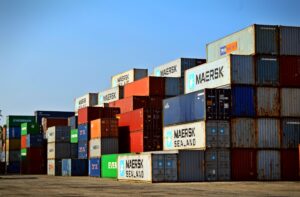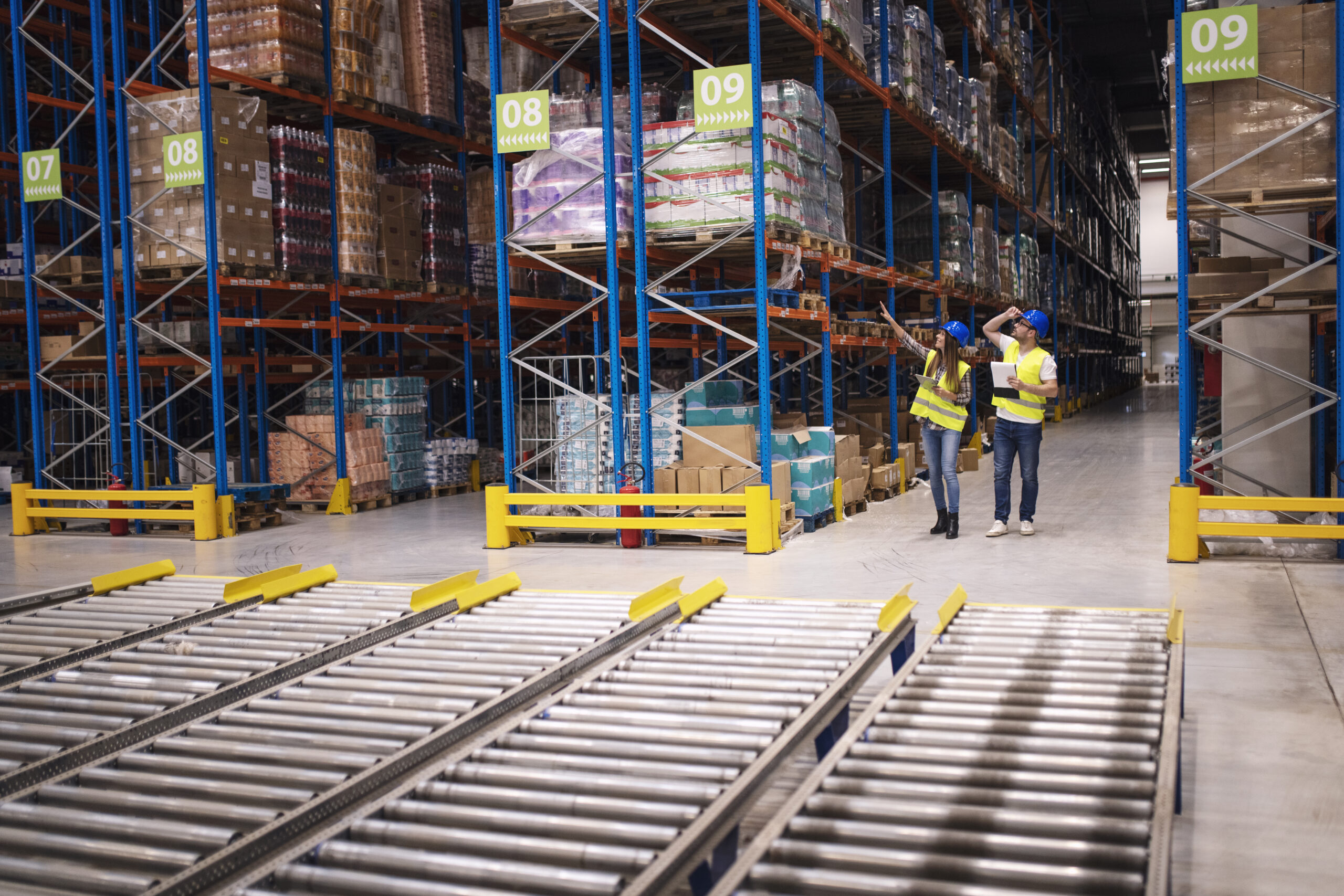Logistics is a set of complex operations and operations performed during international transport. When defined with a general business understanding, logistics is the management of the flow between the point of production and the point of consumption in order to meet the needs of customers or institutions. Resources managed in logistics can include physical items such as food, supplies, animals, equipment and liquids. In addition, intangible elements such as time and information can be listed among the resources included in logistics management. Logistics of physical items often involves the integration of information flow, material handling, manufacturing, packaging, inventory, shipping, warehousing, and often security.
Logistic Management
Logistics management is the part of supply chain management that plans, implements and controls the efficient forward and backward flow and storage of goods, services and related information between the point of origin and the point of consumption to meet customer needs. The complex sequence of logistics operation processes may require a set of methods and rules. The complexity of logistics can be modeled, analyzed, visualized and optimized by specialized simulation software and manpower. Minimizing the use of resources is a common motivation in all logistics areas. A professional operations manager working in the field of logistics management is called a logistician.
Logistics Terminology
The term logistics was coined or popularized by Antoine-Henri Jomini and ratified in English in 1846. Jomini defined the term in his Compendium of the Art of War. The word logistics dates back to the French original and appeared in the 1830 edition formerly called the Analytic Table or Tableau Analytique. Jomini noted that the term is derived from French. The word logis means ‘stay’ in French and the same word is used for ‘guild’ in English. In summary, the term logistics is a military strategy concept that includes the provision of materials, equipment, personnel and logistic support on the battlefield. The origin of the word comes from French and its use has become widespread thanks to the contributions of important military figures such as Antoine-Henri Jomini.
The French word logistique, logistikos in Ancient Greek, is a traditional division of Greek mathematics. It is also the origin of the mathematical term logistics, growth, and its derivatives in related terms. Some sources instead give it as the source of logistics, either ignorant or skeptical of Jomini’s statement that it is derived from logis and instead believing that it is actually of Greek origin, or influenced by the current term of Greek origin.

The Oxford English Dictionary defines logistics as the military science concerned with the supply, maintenance and transportation of materials, personnel and facilities. However, the New Oxford American Dictionary defines logistics as the detailed coordination of a complex operation involving many people, facilities or materials, and the online Oxford Dictionary, defines the term as the detailed organization and execution of a complex operation. In this respect, logistics is generally seen as an engineering branch that creates human systems instead of machine systems.
Logistics Functions
Logistics functions can basically be examined under two main headings. These subheadings are transportation and warehouse management. Transport and storage are essential building blocks for a logistics operation in international transport
Transport
Transportation is the transportation of goods and services between certain points within the scope of logistics management. In this sense, transportation is an important part of logistics management. Transport management, in general terms, stores goods. It also focuses on planning, optimizing and executing the use of vehicles to move goods between retail locations and customers. Transport in logistics management is often multimodal and can include ocean, air, rail and road.

Because international shipping involves a series of sequences, shipping management is a complex process that includes planning and optimizing routes and shipping loads, order management, freight control and payment. It can also extend to field management, a process that oversees the movement of vehicles in yards outside of production facilities, warehouses and distribution facilities. Logistics management is an important consideration as the price, availability and capacity of shipping companies can vary greatly.
Warehousing Management
Warehousing, or warehouse management, includes functions such as inventory management and order fulfillment. It also includes managing the warehouse infrastructure and processes. For example, situations where goods orders are received, processed and fulfilled, that is, they are shipped to the customer or delivered to an order fulfillment center, can also be considered under this term. Most companies use a warehouse management system, i.e. a WMS software, to manage the flow and storage of goods and monitor inventory. Most enterprise resource planning (ERP) software vendors offer TMS and WMS modules, as well as more specialized components for inventory management and other logistics functions.
Other Logistics Functions
Logistics management is an important component of supply chain management. Although the terms are sometimes used interchangeably, logistics focuses on moving products and materials as efficiently as possible. In contrast, supply chain management encompasses a much broader spectrum of supply chain planning activities such as demand planning and sales and operations planning, and supply chain execution including strategic sourcing and transportation management. Customs management or global trade management is often considered a part of logistics. This is because documents demonstrating compliance with government regulations often need to be processed where goods cross national borders or enter shipping ports.
Logistics and Technology
Logistics and technology are intertwined concepts since the emergence of the logistics industry. It is thought that artificial intelligence (AI) and driverless vehicle technology will play important roles in the functioning of logistics in the future.

Some logistics providers are already using AI to better track packages and predict shipping-related issues in the supply chain. However, it is possible that autonomous vehicles such as driverless forklifts, delivery trucks and drones will become more common in warehouses, warehouses and highways within the framework of technological developments.
Importance of Logistics
The importance of logistics has increased in direct proportion with the gradual development and spread of the cargo system today. In this sense, the logistics chain can be considered as a supply chain. While timely delivery of intact packages throughout the supply chain has always been important, the supply chain has become more pervasive and critical in recent years, with omnichannel commerce increasingly becoming the same day home or retail delivery of customized products ordered from smartphones.
Due to this increase in the importance of the supply chain, suppliers, manufacturers, distributors and retailers have had to improve their logistics processes to meet the demand for faster and more convenient delivery of a wider range of products. They also had to better integrate their processes and systems to improve their supply chain visibility.
 The Oxford English Dictionary defines logistics as the military science concerned with the supply, maintenance and transportation of materials, personnel and facilities. However, the New Oxford American Dictionary defines logistics as the detailed coordination of a complex operation involving many people, facilities or materials, and the online Oxford Dictionary, defines the term as the detailed organization and execution of a complex operation. In this respect, logistics is generally seen as an engineering branch that creates human systems instead of machine systems.
The Oxford English Dictionary defines logistics as the military science concerned with the supply, maintenance and transportation of materials, personnel and facilities. However, the New Oxford American Dictionary defines logistics as the detailed coordination of a complex operation involving many people, facilities or materials, and the online Oxford Dictionary, defines the term as the detailed organization and execution of a complex operation. In this respect, logistics is generally seen as an engineering branch that creates human systems instead of machine systems.
 Because international shipping involves a series of sequences, shipping management is a complex process that includes planning and optimizing routes and shipping loads, order management, freight control and payment. It can also extend to field management, a process that oversees the movement of vehicles in yards outside of production facilities, warehouses and distribution facilities. Logistics management is an important consideration as the price, availability and capacity of shipping companies can vary greatly.
Because international shipping involves a series of sequences, shipping management is a complex process that includes planning and optimizing routes and shipping loads, order management, freight control and payment. It can also extend to field management, a process that oversees the movement of vehicles in yards outside of production facilities, warehouses and distribution facilities. Logistics management is an important consideration as the price, availability and capacity of shipping companies can vary greatly.
 Some logistics providers are already using AI to better track packages and predict shipping-related issues in the supply chain. However, it is possible that autonomous vehicles such as driverless forklifts, delivery trucks and drones will become more common in warehouses, warehouses and highways within the framework of technological developments.
Some logistics providers are already using AI to better track packages and predict shipping-related issues in the supply chain. However, it is possible that autonomous vehicles such as driverless forklifts, delivery trucks and drones will become more common in warehouses, warehouses and highways within the framework of technological developments.


